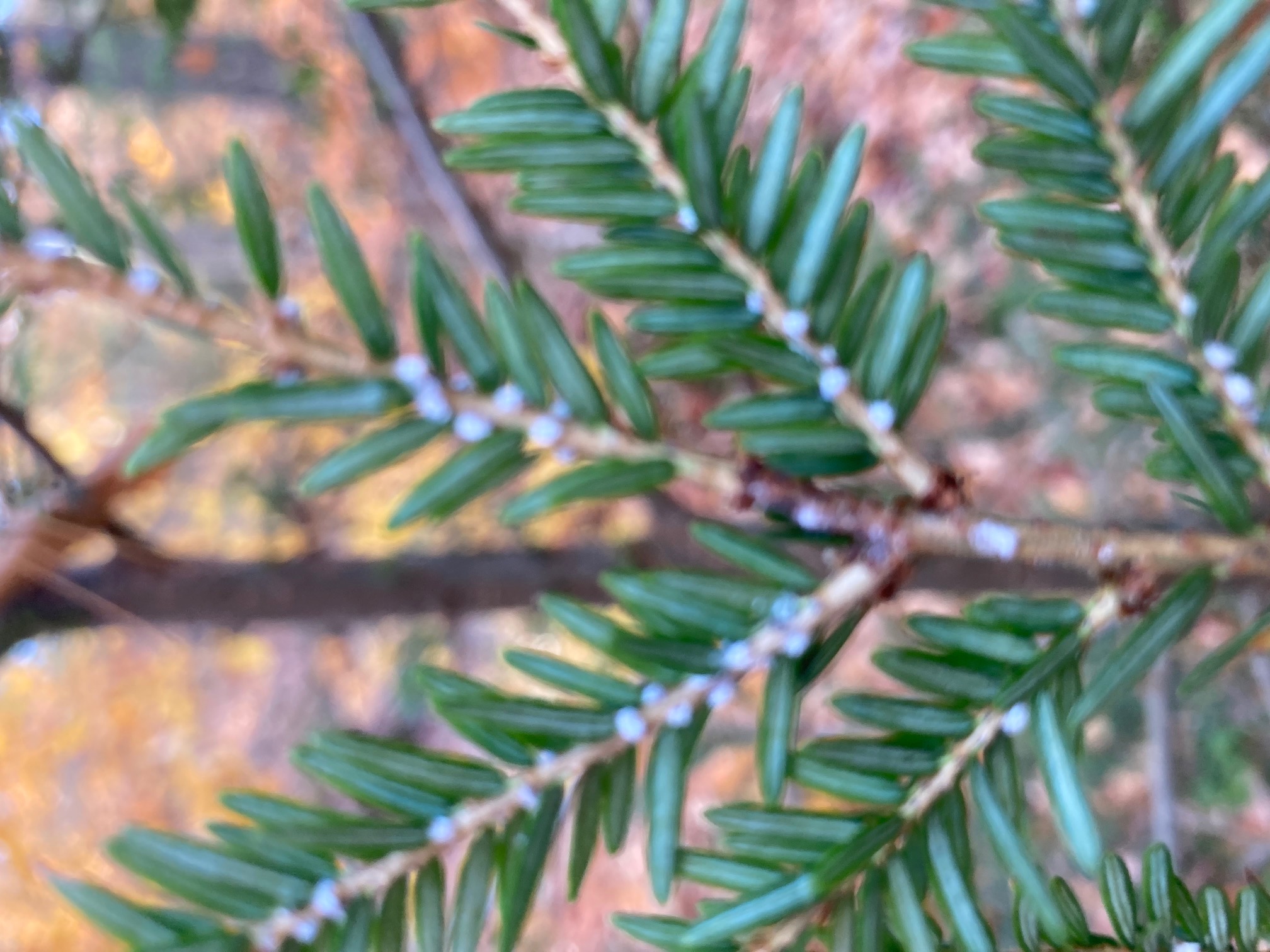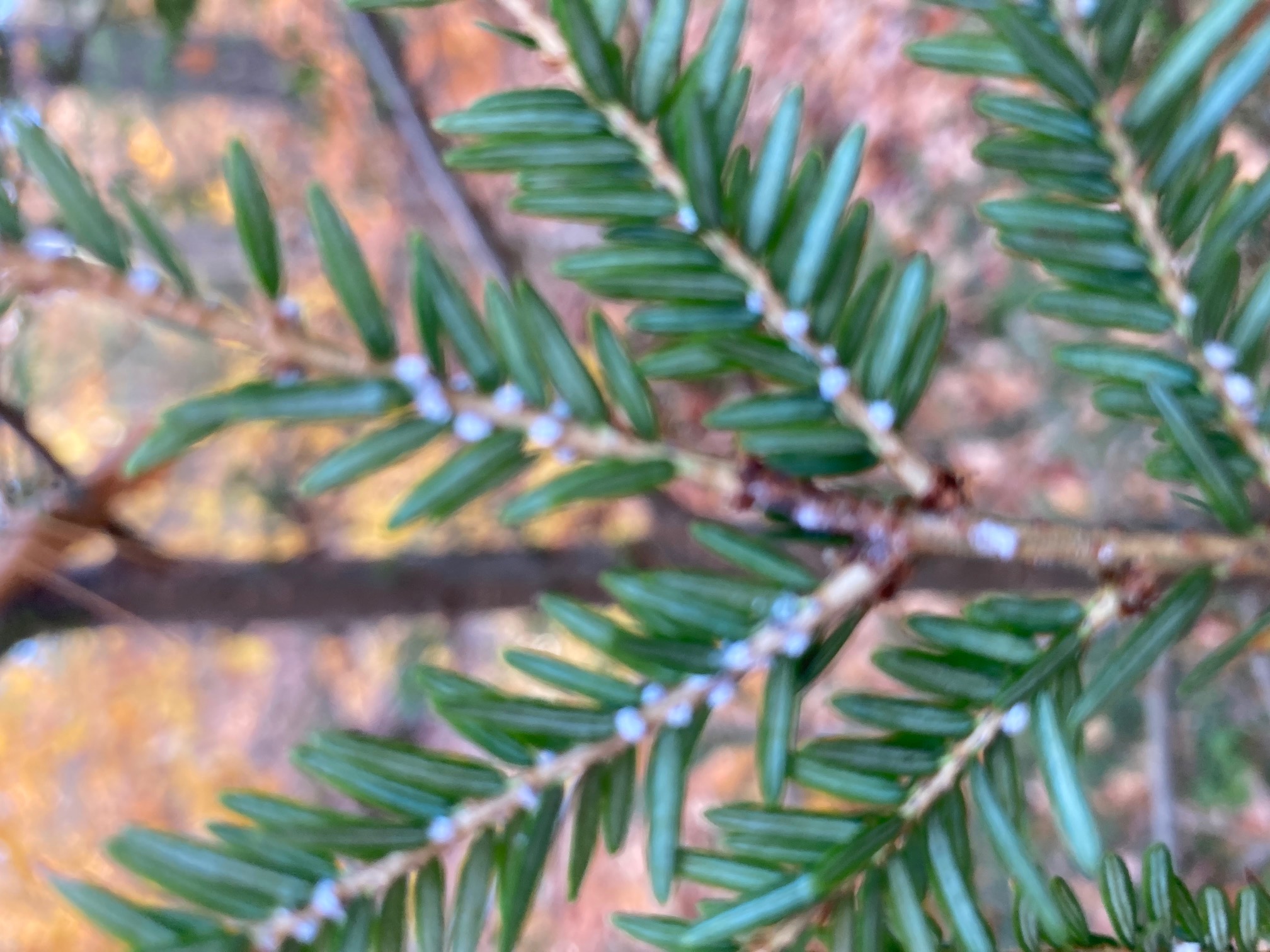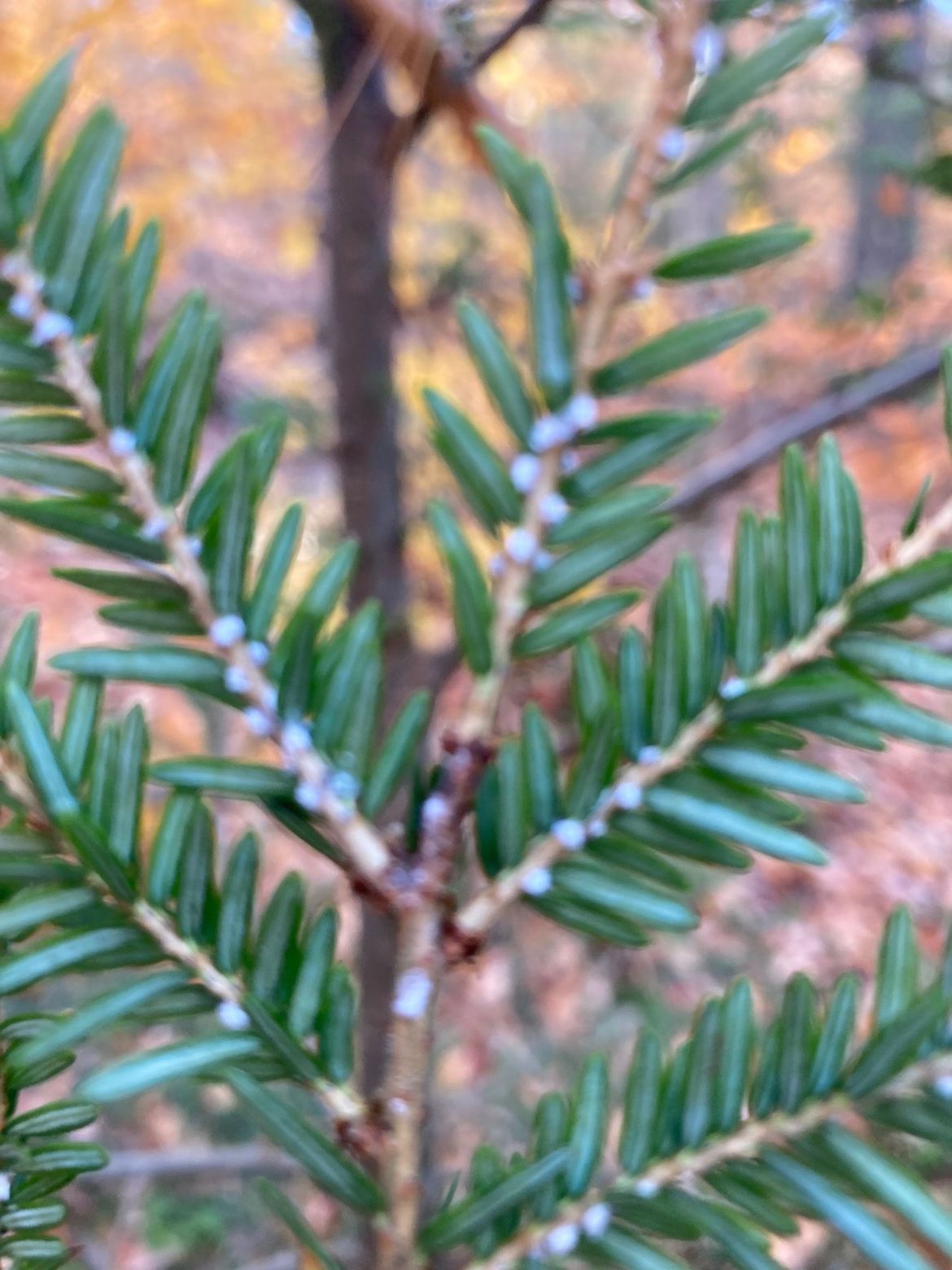Hemlock Research
Etiology and Evidence of Acidification in Hemlock Decline
Tsuga canadensis - Canadian Hemlocks throughout the East Coast are declining and dying. Numerous specimen trees hundreds of years old have already died in the Smoky Mountains of North Carolina. A homopterous insect ( adelgid) commonly known as the hemlock wooly adelgid (HWA) has been blamed for this decline and death. This trial in New Hampshire will attempt to link this decline with other declines worldwide known to have been linked to soil acidification which predisposes trees to secondary insect infestations. Acid rain and the role of mosses and lichens have already been proven to play a role in tree decline complexes CA acidity report2004.doc
Summary:
In November 2021 50 Tsuga Canadensis- Eastern Hemlocks were pruned, tagged and treated with potassium phosphite mixed with pentrabark at a 1:2 ratio as a basal bark spray. Some trees were also treated with dolomitic limestone and the base of the tree where mosses are plentiful. These trees range from 12-45" DBH and are on a North Slope. Some trees are lightly infested with the adelgid and others have no infestation and others are heavily infested. We have noticed the older trees have a higher level of infestation of the insects. The soil was also tested and found to be strongly acidic between 4.5-5.0.
 Hemlock Wooly Adelgids
Hemlock Wooly Adelgids 

